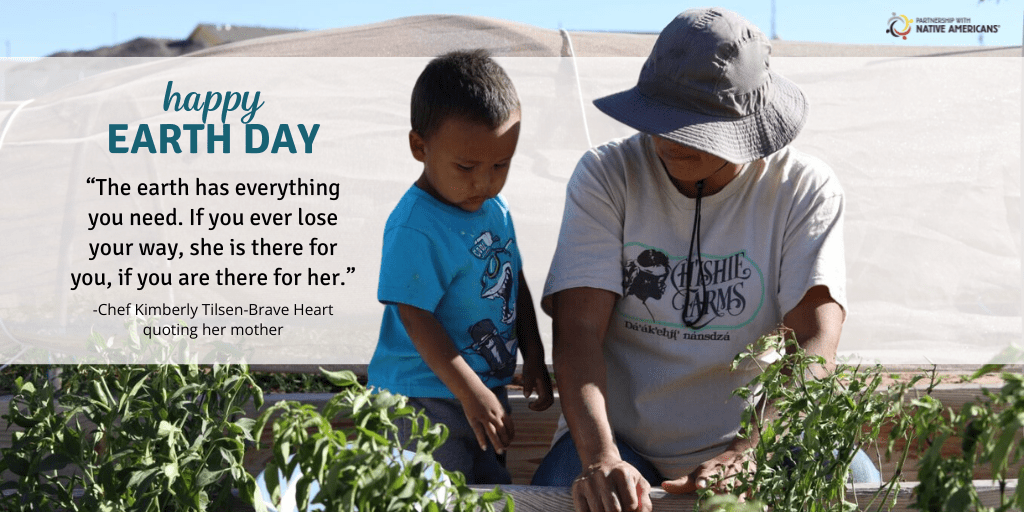- (800) 416-8102
- info@nativepartnership.org
- 16415 Addison Rd, Suite 200, Addison, TX 75001-3210
How to Honor the Tribes on Earth Day
Have you ever wondered how Native Americans celebrate Earth Day? We are often asked this question here at PWNA, and the answer is the same as they do every other day. Native Americans have been good stewards of Mother Earth since time immemorial – encompassing food and water, climate change, natural resources, and more.

Many Tribes still rely on fishing and hunting, making food security and climate change inextricably linked. For Oglala Lakota Chef Kimberly Tilsen-Brave Heart from South Dakota, food is her way of connecting with people, traditions, and the Earth. Harvesting and preparing food is a spiritual experience, one that involves prayer. Kimberly shares this teaching from her mother: “The earth has everything you need. If you ever lose your way, she is there for you, if you are there for her.” Words to live by…
Turning to Indigenous Knowledge
Climate change is threatening the natural resources and ecosystems that sustain Tribal livelihoods, food sources, and cultural practices. So, tribes are planning and adapting. More than 50 tribal climate change plans are in effect to protect their way of life. Indigenous communities could do even more with improvements in infrastructure, funding, and governmental support.
Due to their special connection with the natural environment, officials are turning to Native Americans for answers. For example, scientists are working with tribes to measure the impact of human-caused climate change on water, fish, animals, and trees. In fact, a recent report from the UN Intergovernmental Panel on Climate Change acknowledges that “Indigenous peoples are by far the most effective stewards of biodiversity” and “do the best job” with lower deforestation rates. Tribes are also sharing their wisdom with firefighters about the traditional practice of controlled burns. Besides reducing the risk of dangerous forest fires and increasing biodiversity, controlled burns help lower U.S. carbon emissions by 14 million metric tons each year.
Embracing Renewables
Many tribes are leading the way in green energy too, investing in wind and solar power, moving from coal to renewables, and building green homes. Solar power is a top priority for the Navajo Nation. Cleaner jobs and a cleaner environment go hand-in-hand with human health too.
As U.S. citizens, we all are living on land that belonged to Indigenous peoples before colonialism. Yet every tribe still has an enduring connection with their homelands. So, Earth Day is a good opportunity for land acknowledgments and the commitments that follow. You can start by checking out this app: Whose land are you on?
